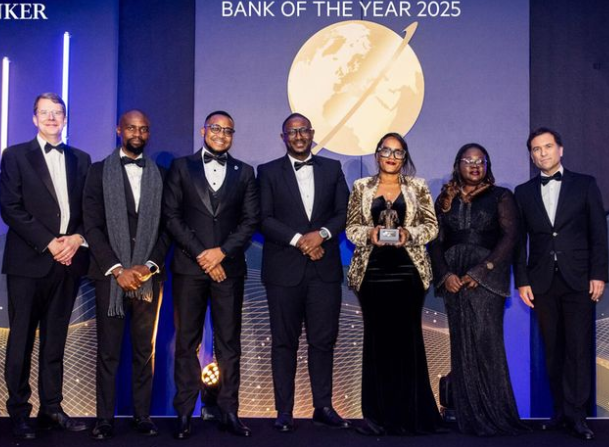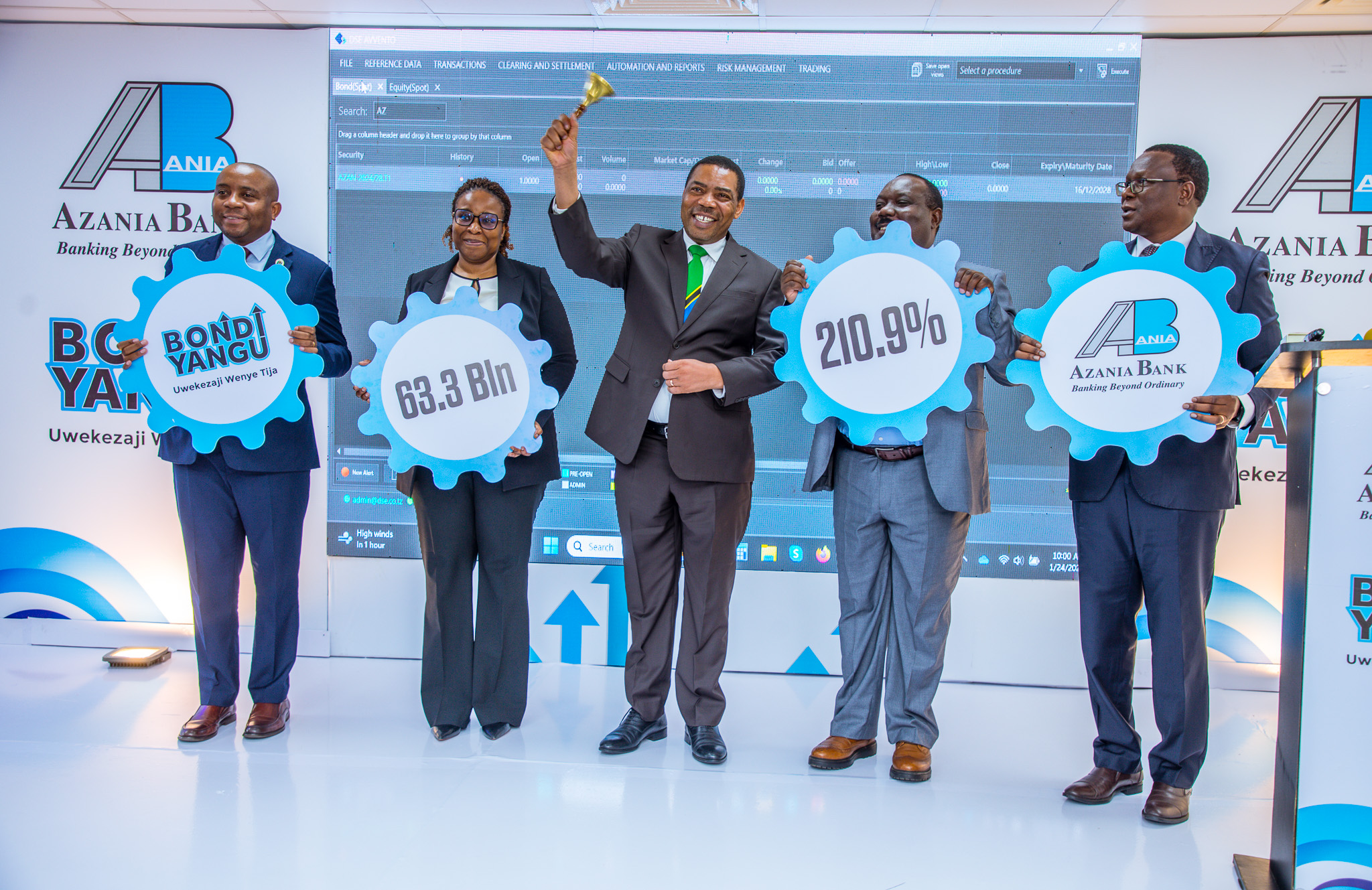Dar es Salaam. The oversubscription of the Samia Infrastructure bond, which raised over Sh300 billion against a target of Sh150 billion, highlights growing investor confidence in Tanzania’s financial markets.
This follows the success of other thematic bonds, including Tanga water utility (Uwasa)’s Water Infrastructure Green Bond, which was oversubscribed by 103 per cent.
Uwasa had planned to raise Sh53.12 billion but ultimately Sh54.72 billion was collected.
NMB Bank’s Jamii bond, which raised Sh400 billion, tripling its initial target.
CRDB Bank’s Kijani bond, the first green bond that was issued in September 2023 was oversubscribed by a remarkable 429.55 percent.
The five-year Kijani bond with a coupon rate of 10.25 percent per annum generated Sh172 billion against the initial target of Sh40 billion.
The strong demand for these instruments signals a deepening capital market, reinforcing Dar es Salaam’s potential to become a regional financial hub.
Despite this momentum, Tanzania’s financial sector remains constrained by the absence of a derivatives market.
The lack of instruments such as index-based derivatives, interest rate swaps and currency hedging mechanisms limits investors’ ability to manage risk and optimise returns.
Establishing a derivatives market would not only enhance market liquidity but also attract more institutional capital, which is critical for financing long-term infrastructure projects.
Developing a sophisticated financial market requires investment in financial infrastructure, regulatory frameworks and human capital.
Strengthening regulatory oversight to align with international best practices would improve transparency and mitigate systemic risks.
Digital trading platforms would enhance market efficiency, while targeted training initiatives would equip market participants with the expertise required to navigate complex financial instruments.
Foreign investors’ participation
The strong participation of foreign investors in recent bond issuances presents an opportunity to position Tanzania as a preferred investment destination.
To capitalise on this interest, authorities need to simplify investment procedures, ensure regulatory stability and actively promote Tanzania’s financial market.
A transparent and predictable regulatory environment will bolster investor confidence and attract long-term capital inflows.
To capitalise on growing foreign investor confidence in Tanzania’s financial markets, the Bank of Tanzania (BoT) has, since January 2025, allowed investors from SADC and the EAC to participate in the Treasury bonds market.
This has resulted in an oversubscription of government securities after months of sluggish investors’ appetite.
Local investors
The government’s move to allow small investors to participate in the government securities was a masterstroke.
The establishment of the secondary market, through the Dar es Salaam Stock Exchange (DSE) gave room both small and institutional investors to exit and re-enter the bonds market as they wish.
But more is needed to ensure the dynamism of the bonds market so as to make Dar es Salaam the veritable regional financial hub.
Enhancing financial literacy among local investors is crucial.
A well-informed investor base would contribute to price discovery, deepen market liquidity and support the sustainable growth of Tanzania’s financial sector.
Dar es Salaam’s vantage point
As the country’s commercial hub and a key gateway to East Africa, Dar es Salaam has the strategic advantages needed to emerge as a regional financial centre.
The city’s economic significance, combined with an evolving financial landscape, makes it well-positioned to attract regional capital flows.
The oversubscription of the Samia Infrastructure Bond and other thematic issuances signals strong investor confidence in Tanzania’s economic prospects.
To fully harness this potential, the country must accelerate the development of a derivatives market, enhance financial infrastructure and engage more proactively with international investors.
With decisive action, Dar es Salaam can strengthen its position as a financial hub, driving economic growth and regional integration.







